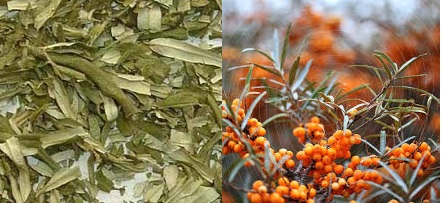Buy Medicinal Plants
https://jkmpic.blogspot.com
Total Pageviews
Sunday, August 25, 2024
Buy exotic fruit trees India
Elderberry Benefits: The Antioxidant Powerhouse You Need in Your Diet
Discover the Healing Power of Abutilon Indicum: Nature's Herbal Remedy
Abutilon indicum, commonly known as Indian mallow or country mallow, is a medicinal plant used in traditional Ayurvedic and folk medicine for its various health benefits. It is known for its anti-inflammatory, antimicrobial, and antioxidant properties. Here are some of the key benefits associated with Abutilon indicum:
WhatsApp/Telegram: 9858986794
Ph: 01933-223705
e-mail: jkmpic@gmail.com
Abutilon indicum Kashmir
1. Anti-Inflammatory Effects
- Abutilon indicum has strong anti-inflammatory properties, which make it useful in treating conditions like arthritis, muscle pain, and other inflammatory disorders. It is often used in traditional medicine to reduce swelling and inflammation.
2. Antimicrobial Properties
- The plant contains compounds that exhibit antimicrobial activity against a wide range of pathogens, including bacteria and fungi. This makes it useful in treating infections, particularly skin infections, wounds, and urinary tract infections.
3. Respiratory Health
- In traditional Ayurvedic medicine, Abutilon indicum is used to treat respiratory conditions such as asthma, bronchitis, and cough. The leaves and roots of the plant are believed to help clear the respiratory tract and ease breathing.
4. Wound Healing
- The leaves and roots of Abutilon indicum are used in poultices and ointments for treating wounds, cuts, and burns. Its wound-healing properties are attributed to its antimicrobial and anti-inflammatory effects, which promote faster healing and prevent infections.
5. Diuretic and Detoxifying Effects
- The plant has diuretic properties, meaning it helps increase urine production, which can be beneficial for detoxification and managing conditions like kidney stones and urinary tract infections.
6. Digestive Health
- Abutilon indicum is used to treat various digestive issues, including constipation and indigestion. Its mild laxative properties can help regulate bowel movements and ease digestive discomfort.
7. Pain Relief
- Traditionally, the plant has been used as a natural analgesic (pain reliever) for various types of pain, including headaches, joint pain, and menstrual pain.
8. Antioxidant Properties
- The plant is rich in antioxidants, which help protect the body from oxidative stress and free radical damage. This can support overall health and reduce the risk of chronic diseases.
9. Skin Health
- The leaves and roots of Abutilon indicum are used in traditional remedies for skin conditions such as eczema, rashes, and acne. Its soothing and healing properties help improve skin health.
10. Traditional Uses in Ayurveda
- In Ayurveda, Abutilon indicum is used as a tonic and rejuvenator, known as a "Rasayana" herb. It is believed to boost vitality, strengthen the body, and improve overall well-being.
Common Uses
- The plant is used in the form of decoctions, poultices, and infusions, depending on the condition being treated. Different parts of the plant (leaves, roots, seeds, and flowers) are used for various purposes.
- Anti-inflammatory properties,
- Ayurvedic medicine,
- Antimicrobial effects,
- Respiratory health,
- Wound healing,
- Diuretic effects,
- Digestive health,
- Pain relief,
- Antioxidant properties,
- Traditional medicine,
- Herbal remedies,
Conium Maculatum: Exploring the Myths, Dangers, and Emerging Studies
 |
| Conium maculatum plant |
Key Points:
Potential Anti-Cancer Properties: Some studies suggest that the toxic alkaloids in Conium maculatum might have anti-cancer properties, particularly in inducing cell death (apoptosis) in certain cancer cells. The mechanism of action is related to the disruption of cellular processes by the alkaloids.
Research is Preliminary: While laboratory research may show promise, there is no established clinical application of poison hemlock in cancer treatment. The use of Conium extracts in humans for cancer therapy has not been proven safe or effective in controlled studies.
Toxicity Concerns: Due to its highly toxic nature, any use of Conium maculatum outside of strictly controlled research environments is dangerous. It can cause life-threatening symptoms even in small doses, making it unsuitable for self-treatment or use outside professional settings.
In summary, while there are some studies investigating the potential anti-cancer properties of Conium maculatum, it is not a recommended treatment due to its extreme toxicity and the lack of sufficient evidence. Always consult with a medical professional before considering any alternative treatments for cancer.
WhatsApp/Telegram: 9858986794
Ph: 01933-223705
e-mail: jkmpic@gmail.com
Saturday, August 24, 2024
Discover the Health Benefits of Mamra Badam: The King of Almonds
 |
| Mamra Badam from Kashmir |
Mamra almonds are a highly sought-after variety of almonds, known for their rich flavor, high oil content, and nutrient density. Native to Iran Kashmir and Afghanistan, these almonds are often considered superior in quality compared to other types due to their organic cultivation process and traditional farming methods.
Key Characteristics of Mamra Almonds:
High Oil Content: Mamra almonds contain about 50% oil, which contributes to their creamy texture and rich taste.
Nutrient-Rich: They are packed with essential nutrients like vitamin E, magnesium, and protein.
Organic: These almonds are often grown without chemical fertilizers or pesticides, making them a healthier choice.
Crunchy Texture: They have a distinct crunchy texture compared to other almond varieties.
Mamra almonds are typically more expensive than other almonds due to their limited production and labor-intensive cultivation methods. They are often used in gourmet cooking, confectionery, and as a premium snack.



